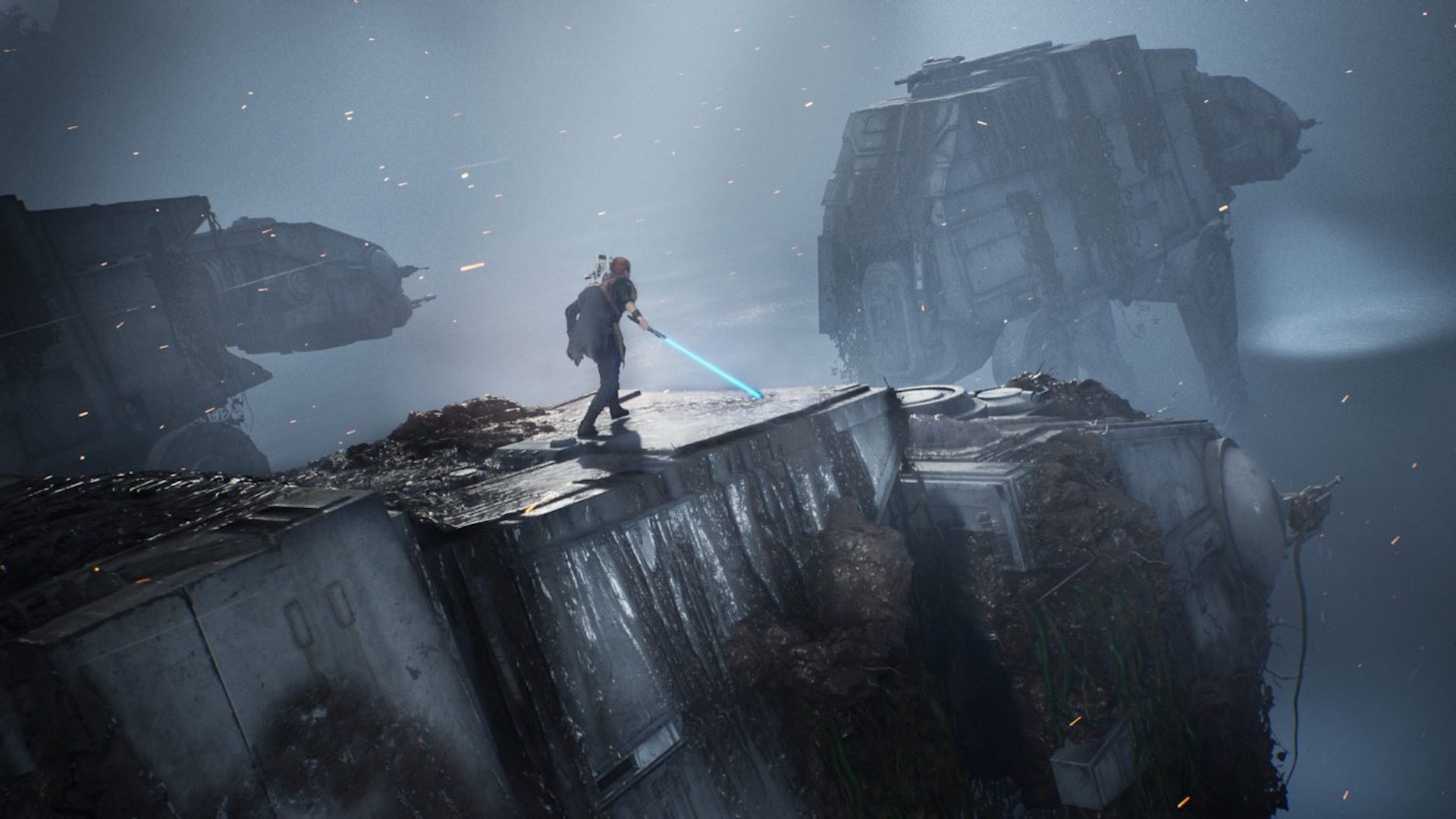
There is no doubt that EA’s new single player game Star Wars Jedi: Fallen Order is an unmitigated success on all fronts. In terms of sales, Fallen Order has outsold the previous two Star Wars games in their respective launch window time frames both physically and digitally. But sales isn’t the only area where the infamous game publisher is seeing success with it’s newest major title. Critical reception of Fallen Order has also been quite favorable with many mainstream and independent gaming reviewers praising the game’s graphics, storytelling, and obvious appreciation for the Star Wars universe.
On top of that, Fallen Order’s lack of microtransactions and other techniques that EA is known to shoehorn into games to nickel and dime their players has not gone unnoticed. There’s no other way to slice it; Jedi: Fallen Order is yet another example of EA taking in the feedback they’ve received over the years and at least giving the appearance of turning things around. So, the question is no longer whether or not EA knows what it needs to do. The question is; are they really doing it? Or are they just doing their level best to appear that way? The fact that this is even a question speaks volumes about the company and the state of gaming as a whole. But nevertheless, it is a question that more than deserves to be asked at this point.
Obviously, we can’t read minds here, but there are enough kernels of information that we can piece together a picture that may perhaps give us a better view of what EA is likely thinking. First and foremost, the contrast between the backlash they received for the last two Battlefront games, Andromeda, Anthem, and the praise they received for Fallen Order has without a doubt sent shockwaves through EA and gaming as a whole. How far those shockwaves have gone and whether or not they reached the upper echelon of decision-making within the walls of the massive publisher remains to be seen, but there’s no doubt that the difference is stark and obvious to anybody who takes the time to look at it. This is a huge advantage to EA though. It’s not often where a company’s customer base makes so obvious what they expect from the company, and as such, gamers matching they’re criticisms with their spending choices is also a rare gift for them.
Usually, deciding when to change direction and what direction to change to for a massive corporation is a costly procedure, drawn out by multiple risk assessments and other calculations. But in the case of EA, to anybody who has been paying much attention, the problems and the solutions are fairly obvious. You don’t need to pay a focus group to tell you that the main issue that gamers have with EA is the microtransactions, particularly the ones tied to character progression, and the philosophy of creating experiences with solid foundations but squandering much of it in order to churn out always online games that feel more like services than localized traditional games. The half-baked releases that we saw out of the last two BioWare games didn’t help either.
While we have seen glimpses of EA continuing to show some appreciation for single-player games over the last few years with smaller experiences like the Unravel games, largely they have doubled down on the ideas of rushing out games as a service for their triple-A experiences. This has, as we all know, largely been a flop critically and underperformed to one degree or another in terms of sales. So, with Jedi: Fallen Order largely focusing on front-loading the bulk of their appeal to be available within that initial $60 purchase, and the cautious optimism that gamers have shown about EA’s future, the path forward for EA does seem to be just as obvious as it is difficult to screw up. The next few years for EA are EA’s to lose.
That being said, other than this surface-level appearance of EA turning things around, there is little solid evidence that some sort of large, lasting philosophical shift has even taken place. EA has been around for a long time and one year of experimentation might not be as indicative of a new path forward as we all might want to think. It also goes without being said that even a broken clock is right twice a day. With EA’s Origin client returning to selling games on PC and their subscription service beginning to gain a fair amount of steam, one could surmise that there is some evidence is in favor of a major turn-around. But looking around the gaming landscape might introduce some doubt into that.
In particular, EA’s mightiest opponent, Activision, which has taken to the strategy of inserting microtransactions into many of their most popular games months after release, and more importantly, after the bulk of the reviews have already been written and digested by the public. To think that EA hasn’t noticed this Trojan Horse technique and isn’t at least considering their own version of it would be incredibly naive as they look to find a balance between winning the affections of gamers whose interest in EA has waned over the years and their fiduciary responsibilities to continue to generate profits and grow the company.
With all of these angles and more being considered by anybody who is paying attention, could EA be turning things around? Absolutely. There are multiple instances in recent and not-so recent history that do seem to point to lessons being learned and translated into better, more respectful experiences for gamers. With EA’s long history of making great games and fostering fantastic development teams for literal decades, it’s tough to imagine that nobody over there has any idea how to bring that spirit back into the ethos of decision making. That being said, could you be blamed for suspecting that EA is simply building up good will and political capital with gamers just so they can spend it later on a future title that will more closely resemble the transactional Battlefront games? Of course not.
This is not an uncommon practice with corporations who want to get back into the good graces of their shareholders and primary customers. Why uproot a strategy when making it seem like uprooting it is far cheaper? Especially if said corporation can pull that off. While it’s impossible to definitively say which thing is happening, or if it just happens to be some sort of combination of the two, given EA’s track record and the infancy of this supposed change in philosophy, It’s more than likely just a little too soon for any reasonable person on the outside of EA to be planning on either outcome quite yet.
In all likelihood, EA is still figuring out where they land when it comes to staying the course with the move to games as a service or not. With so many moving parts in a company that large, and so much at stake with every decision, any sudden dramatic shift would have too many unintended consequences to carry out. But if EA is on the verge of a major change, they will ultimately let the world know with more games that respect their players, and less games that only seem to respect their money.
Note: The views expressed in this article are those of the author and do not necessarily represent the views of, and should not be attributed to, GamingBolt as an organization.

















